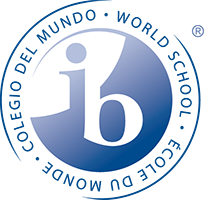Biology
Biologists investigate the living world at all levels using many different approaches and techniques. At one end of the scale is the cell, its molecular construction and complex metabolic reactions. At the other end of the scale biologists investigate the interactions that make whole ecosystems function. Through studying a science subject students should become aware of how scientists work and communicate with each other. While the scientific method may take on a wide variety of forms, the emphasis is on a practical approach.
In addition, through the overarching theme of the “Nature of Science” this knowledge and skills will be put into the context of way science and scientists work in the 21st Century and the ethical debates and limitations of creative scientific endeavour. Students have opportunities to design investigations, collect data, develop manipulative skills, analyse results, collaborate with peers and evaluate and communicate their findings. The investigations may be laboratory based or they may make use of simulations and databases. Students develop the skills to work independently on their own design, but also collegiately, including collaboration with schools in different regions, to mirror the way in which scientific research is conducted in the wider community.
Work required outside of class will be dedicated to studying concepts and practicing questions as well as internal assessment (laboratory reports) which make up 20% of the final course grade. Assessment is graded externally.
|
Standard Level Course Content
|
Standard Level Assessment
|
|
Core:
Statistical Analysis
Cells
The Chemistry of Life
Genetics
Ecology and Evolution
Human Health and Physiology
Options (choice of 1):
Neurobiology and Behaviour
Biotechnology and Bioinformatics
Ecology and Conservation
Human Physiology
|
Paper 1 (¾ hours) - 20%
30 multiple-choice questions on the core. No calculators is permitted.
Paper 2 (1¼ hours) - 40%
Short-answer and extended response questions on core material. The use of calculators is permitted
Paper 3 (1 hour) - 20%
Section A: One data based question and several short-answer questions on experimental work.
Section B: Short answer and extended response questions from one option
Internal Assessment (10 hours) - 20%
One laboratory report based on student choice throughout the course
|
|
Higher Level Course Content
|
Higher Level Assessment
|
|
Core:
Statistical Analysis
Cells
The Chemistry of Life
Genetics
Ecology and Evolution
Human Health and Physiology
Additional Higher Level:
Nucleic Acids and Proteins
Cell Respiration and Photosynthesis
Plant Science
Genetics
Human Health and Physiology
Options (choice of 1):
Neurobiology and Behaviour
Biotechnology and Bioinformatics
Ecology and Conservation
Human Physiology
|
Paper 1 (1 hour) - 20%
40 multiple-choice questions on the core and higher level content. No calculators is permitted.
Paper 2 (2¼ hours) - 36%
Short-answer and extended response questions on core material. The use of calculators is permitted
Paper 3 (1¼ hours) - 24%
Section A: Onel data based question and several short-answer questions on experimental work.
Section B: Short answer and extended response questions from one option
Internal Assessment (10 hours) - 20%
One laboratory report based on student choice throughout the course
|
Chemistry
Chemistry is an experimental science that combines academic study with the acquisition of practical and investigational skills. Chemical principles underpin both the physical environment in which we live and all biological systems. The DP chemistry course allows students to develop a wide range of practical skills and to increase facility in the use of mathematics. It also allows students to develop interpersonal and information technology skills, which are essential to life in the 21st century. By studying chemistry students should become aware of how scientists work and communicate with each other. While the scientific method may take on a wide variety of forms, it is the emphasis on a practical approach through experimental work that characterizes the subject.
Work required outside of class will be dedicated to studying concepts and practicing questions as well as internal assessment (laboratory reports) which make up 20% of the final course grade. Assessment is graded externally.
|
Standard Level Course Content
|
Standard Level Assessment
|
|
Core:
Stoichiometric Relationships
Atomic Structure
Periodicity
Chemical Bonding and Structure
Energetics/Thermochemistry
Chemical Kinetics
Equilibrium
Acids and Bases
Organic Chemistry
Redox Processes
Measurement and Analysis
Options (choice of 1):
Materials
Biochemistry
Energy
Medicinal Chemistry
|
Paper 1 (¾ hours) - 20%
30 multiple-choice questions on the core. No calculators is permitted.
Paper 2 (1¼ hours) - 40%
Short-answer and extended response questions on core material. The use of calculators is permitted
Paper 3 (1 hour) - 20%
Section A: One data based question and several short-answer questions on experimental work.
Section B: Short answer and extended response questions from one option
Internal Assessment (10 hours) - 20%
One laboratory report based on student choice throughout the course
|
|
Higher Level Course Content
|
Higher Level Assessment
|
|
Core:
Stoichiometric Relationships
Atomic Structure
Periodicity
Chemical Bonding and Structure
Energetics/Thermochemistry
Chemical Kinetics
Equilibrium
Acids and Bases
Organic Chemistry
Redox Processes
Measurement and Analysis
Additional Higher Level:
Atomic Structure
The Periodic Table - Transition Metals
Chemical Bonding and Structure
Energetics/Thermochemistry
Chemical Kinetics
Equilibrium
Redox Processes
Organic Chemistry
Measurement and Analysis
Options (choice of 1):
Materials
Biochemistry
Energy
Medicinal Chemistry
|
Paper 1 (1 hour) - 20%
40 multiple-choice questions on the core and higher level content. No calculators is permitted.
Paper 2 (2¼ hours) - 36%
Short-answer and extended response questions on core material. The use of calculators is permitted
Paper 3 (1¼ hours) - 24%
Section A: Onel data based question and several short-answer questions on experimental work.
Section B: Short answer and extended response questions from one option
Internal Assessment (10 hours) - 20%
One laboratory report based on student choice throughout the course
|
Physics
Physics is the most fundamental of the experimental sciences, as it seeks to explain the universe itself from the very smallest particles to the vast distances between galaxies. Despite the exciting and extraordinary development of ideas throughout the history of physics, observations remain essential to the very core of the subject. Models are developed to try to understand observations, and these themselves can become theories that attempt to explain the observations. Through studying a science subject students should become aware of how scientists work and communicate with each other. While the scientific method may take on a wide variety of forms, the emphasis is on a practical approach.
In addition, through the overarching theme of the “Nature of Science” this knowledge and skills will be put into the context of the way science and scientists work in the 21st Century and the ethical debates and limitations of creative scientific endeavour. The sciences are taught practically. Students have opportunities to design investigations, collect data, develop manipulative skills, analyse results, collaborate with peers and evaluate and communicate their findings. The investigations may be laboratory based or they may make use of simulations and data bases. Students develop the skills to work independently on their own design, but also collegiately, including collaboration with schools in different regions, to mirror the way in which scientific research is conducted in the wider community.
Work required outside of class will be dedicated to studying concepts and practicing questions as well as internal assessment (laboratory reports) which make up 20% of the final course grade. Assessment is graded externally.
|
Standard Level Course Content
|
Standard Level Assessment
|
|
Core:
Measurements and Uncertainties
Mechanics
Thermal Physics
Waves
Electricity and Magnetism
Circular Motion and Gravitation
Atomic, Nuclear and Particle Physics
Energy Production
Options (choice of 1):
Relativity
Engineering Physics
Imaging
Astrophysics
|
Paper 1 (¾ hours) - 20%
30 multiple-choice questions on the core. No calculators is permitted.
Paper 2 (1¼ hours) - 40%
Short-answer and extended response questions on core material. The use of calculators is permitted
Paper 3 (1 hour) - 20%
Section A: One data based question and several short-answer questions on experimental work.
Section B: Short answer and extended response questions from one option
Internal Assessment (10 hours) - 20%
One laboratory report based on student choice throughout the course
|
|
Higher Level Course Content
|
Higher Level Assessment
|
|
Core:
Measurements and Uncertainties
Mechanics
Thermal Physics
Waves
Electricity and Magnetism
Circular Motion and Gravitation
Atomic, Nuclear and Particle Physics
Energy Production
Additional Higher Level:
Wave Phenomena
Fields
Electromagnetic Induction
Quantum and Nuclear Physics
Options (choice of 1):
Relativity
Engineering Physics
Imaging
Astrophysics
|
Paper 1 (1 hour) - 20%
40 multiple-choice questions on the core and higher level content. No calculators is permitted.
Paper 2 (2¼ hours) - 36%
Short-answer and extended response questions on core material. The use of calculators is permitted
Paper 3 (1¼ hours) - 24%
Section A: Onel data based question and several short-answer questions on experimental work.
Section B: Short answer and extended response questions from one option
Internal Assessment (10 hours) - 20%
One laboratory report based on student choice throughout the course
|




